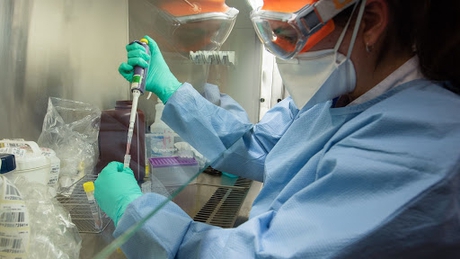One nation had been giving the world a sort of “master class” on how to handle the covid-19 outbreak. However, everything got worse
Before the disease had a name, Singapore had strict travel restrictions and an efficient contact-tracking operation, which kept the spread of the virus at bay.
But in recent days, the number of confirmed cases has skyrocketed. ANDThursday, the highest day for new infections to date, totaled 287 patients, compared to 142 the day before.
Most infections come from densely populated migrant worker accommodation.
So after avoiding it for months, Singapore is now under partial quarantine, with schools and nonessential businesses closed, and a call for people to stay home.
Singapore had its first case of the new coronavirus very soon. It was a Chinese tourist who arrived from Wuhan on January 23, the same day that the epicenter of the virus was completely quarantined.
When the disease caused by the virus got its official name, covid-19, it was already spreading among the population of Singapore. But a well-rehearsed response was underway.
In addition to health checks at airports, the government carried out exhaustive tests of each suspected case; he tracked down anyone who had come into contact with a confirmed case; and confined those contacts in their homes.
The director of the World Health Organization (WHO), Tedros Adhanom Ghebreyesus, called it “a good example of a government-wide approach.”
For weeks, Singapore managed to keep its numbers low and traceable, with only small groups and easily contained, without any real restrictions on daily life.
But Professor Dale Fisher, president of the WHO Global Outbreak Alert and Response Network and professor at the National University of Singapore, told the BBC that whenever he heard people say that Singapore was fine, he replied: ” Until now”.
“This is a really difficult disease to contain“, He says.
What went wrong in Singapore
The system worked until mid-March, says Professor Yik-Ying Teo, dean of the Saw Swee Hock School of Public Health in Singapore.
It was then that, as the gravity of the situation became evident around the world, countries began to urge their citizens to return to the country.
Thousands returned to Singapore from places where their governments had not been so proactive, including more than 500 people who inadvertently brought the virus with them.
By then, returnees were required to stay home for two weeks, BBC World reported.
But other people in the country were told that they could get on with their lives as long as no one showed any symptoms.
While new cases were on the rise, in mid-March there were already dozens a day. Most were imported or linked to imported cases, but for the first time, not all domestic cases could be Track easily.
Professor Teo says it’s easy to say in retrospect that it was a mistake not to limit the interactions of the returnees. But the reality, he points out, is that “right now we know much more about the disease compared to March.”
“We now know that asymptomatic spread is entirely possible: it happens and could be the main driver of covid-19 transmission,” says Professor Teo.
Precisely because Singapore has kept such detailed records of all cases, it has been able to learn from the internal spread.
“The measures have evolved with an understanding of where the cases come from,” says Professor Teo.
That means countries must be cautious about relying too heavily on the information we have now, he explains.
Find out the latest on digital economy, startups, fintech, corporate innovation and blockchain. CLICK HERE

Corresponsal de Argentina, Encargado de seleccionar las noticias más relevantes de su interés a nuestro sitio web NewsPer.com





